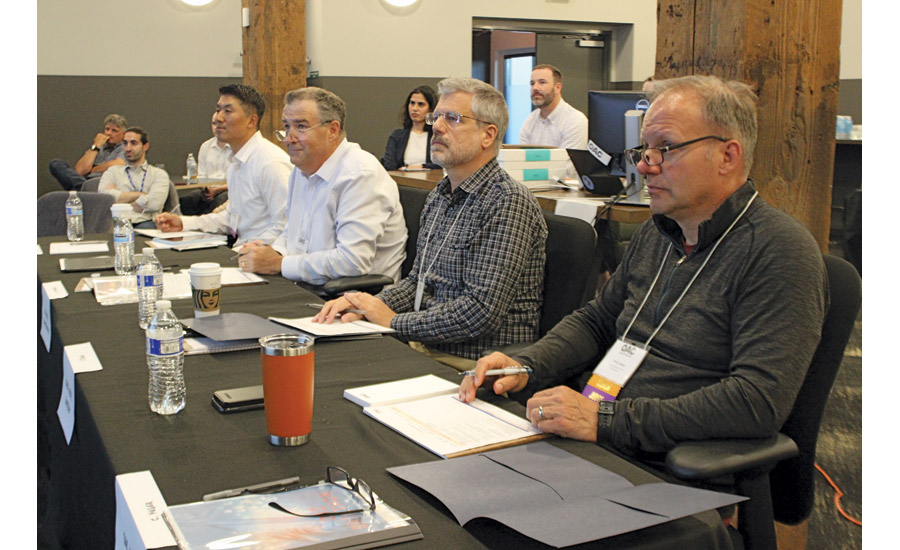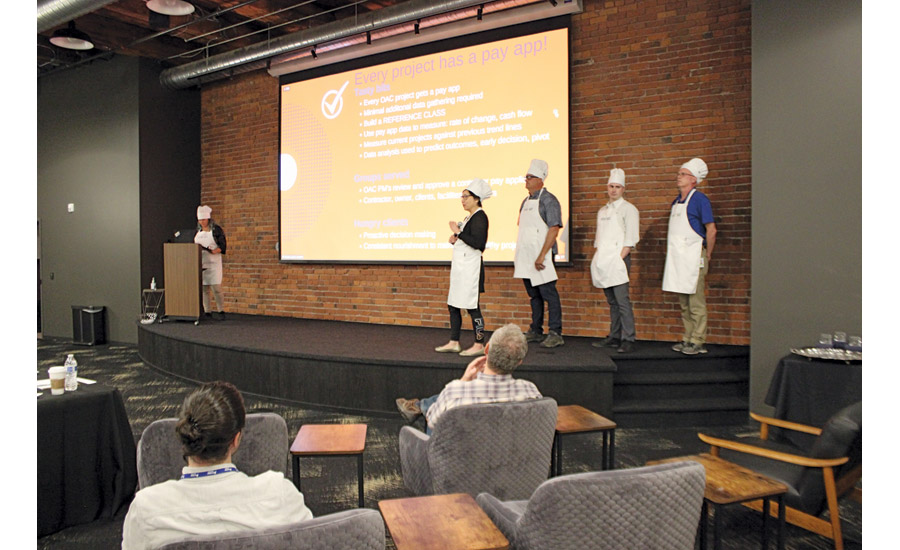Construction companies swim in an overwhelming ocean of bits and bytes. To cut through the cacophony and identify what data is important, Seattle-based design and construction management firm OAC held its first ever datathon competition earlier this summer, inspired by the hackathons held at tech companies, where teams of programmers compete to create innovative solutions or prototypes.
Similarly, OAC’s datathon tasked teams of employees to work together to come up with a pitch using a subset (or multiple subsets) of available data, which could include anything from cost management fees in varying locales to cash flow to geographic distribution of new hires. The five teams then developed their ideas over several weeks, shaping the data into a usable plan that would benefit the company.
The process culminated with the groups formulating quick-fire presentations. Then, on a Saturday afternoon in July, the teams plus spectators assembled at the firm’s Seattle headquarters, many donning costumes or other flair to celebrate team spirit. Each group had just 10 minutes to present their ideas to our “Shark Tank”-style panel of judges, where I collaborated with OAC CEO Shawn Mahoney and others. Presentations were scored based on the intended value to the company, acumen of data analysis, data visualization and lessons learned.

Blair (center right) joined Mahoney (center left) and others to mull the business value of pitches.
Photo by Arianna Kemis/OAC
Winning team Byte Size mined data from general contractor pay applications—a data set that is required on every project that OAC completes but has been underutilized for analysis—sorted by project type and size to provide leading and lagging indicators on trends such as cash flow predictions, rate of work put in place and schedule monitoring. While that may sound dry, Byte Size’s presentation was anything but—they donned chef’s outfits and cleverly themed their slides around a restaurant menu in a presentation titled "Test Kitchen With Market Fresh Data."
“In a world of so much data, clean data is key,” says Kyle Richardson, Byte Size team leader and senior director with OAC. Without clean data, “actionable intelligence and conclusions are hard to derive.”
Beyond the presentations, which will be studied further by OAC strategic planning teams for possible implementation, the firm also identified data that currently isn’t being collected but should be, Mahoney says.
“The most important insight gained is that data is a value creator and differentiator in our industry. Data helps us create operational wisdom across the firm—and that is invaluable,” Mahoney adds.





Post a comment to this article
Report Abusive Comment